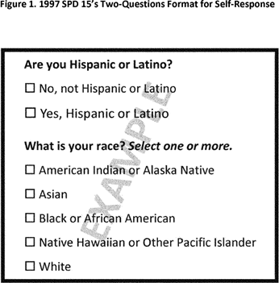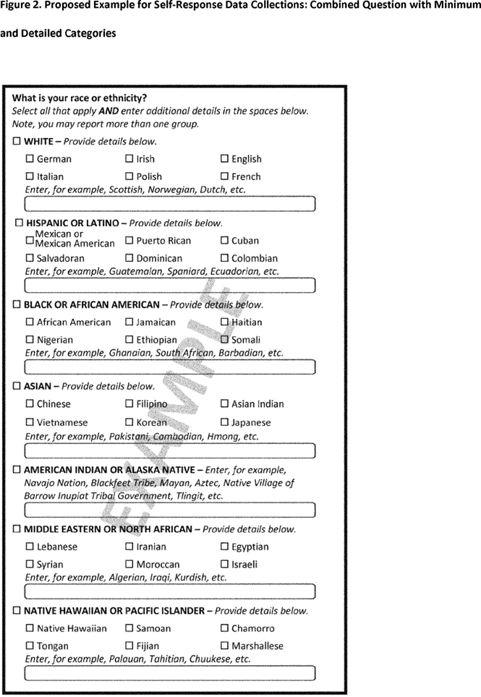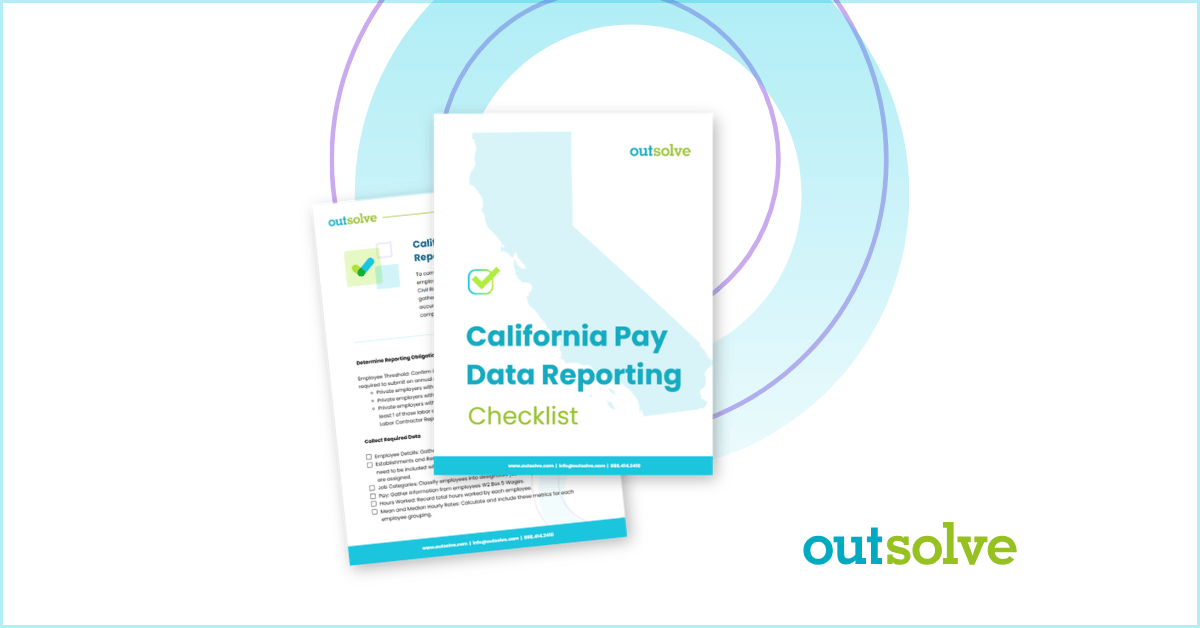3 min read
Revisions to OMB’s Standards for Collecting and Reporting Race and Ethnicity Data Proposed
 Debra Milstein Gardner
:
Mar 9, 2023 12:10:57 PM
Debra Milstein Gardner
:
Mar 9, 2023 12:10:57 PM
.png)
Interagency Working Group presented five proposals to improve the quality and usefulness of race and ethnicity data
The Office of Management and Budget (OMB) recently released five initial proposals to update the minimum standards for collecting and reporting data on race and ethnicity for all federal reporting. The OMB Interagency Technical Working Group on Race and Ethnicity Standards published the proposals, along with public listening sessions, and a document from the White House titled “Reviewing and Revising Standards for Maintaining, Collecting, and Presenting Federal Data on Race and Ethnicity.” The Working Group is comprised of Federal career staff who represent 36 programs that collect or use race and ethnicity data. The Group was asked to provide recommendations on “how to improve the quality and usefulness of SPD 15 (OMB’s 1997 Statistical Policy Directive No. 15: Standards for Maintaining, Collecting, and Presenting Federal Data on race and ethnicity), to help make sure that Federal race and ethnicity data better reflects a diverse America.”
SPD 15 is used by federal contractors to assign race and ethnicity codes to applicants and employees to support the affirmative action plan, analysis of personnel activity data, submission of EEO-1 reports, as well as, other internal uses.
The following is the current revised 1997 SPD 15’s two-question format:

Comments gleaned from the public listening sessions seemed to hit on all the race and ethnicity groups. The following is a small sample of some of the comments.
- Adding detailed categories for the Black or African American reporting to include “American Freedman” or “American Descendant of Slavery.”
- Collecting more granular data from the Asian group to include “Japanese”, “Hmong”, “Cambodian”, etc.
- Combining the race and ethnicity question since there is some confusion of the distinction between the two. Others disagreed saying that the race data for the Hispanic or Latino population may be lost. There appears to be some concern that Puerto Rican people may only select “Hispanic or Latino” and not “Black or African American” in a combined question form.
- Adding a new category for the Middle Eastern or North African (MENA) population.
Some of the proposals’ recommendations include: (Further explanations are provided in the proposals and on the OMB site.)
- Collect race and ethnicity information using one combined question.
- Add “Middle Eastern or North African (MENA)” as a new minimum category.
- Require the collection of detailed race and ethnicity categories by default. The following is a proposed example with minimum and detailed categories.

The following example is the combined question with minimum categories only.

For each of the proposal’s recommendations, the Working Group requests public comments on specific questions. Comments must be received by April 12, 2023. On the regulations.gov website, type “OMB-2023-0001” in the Comment or Submission box, click go, and follow the instructions for submitting comments.
The Office of Management and Budget (OMB) and the Federal Interagency Technical Working Group on Race and Ethnicity Standards have scheduled the following three Town Halls to discuss the initial proposal.
- Tuesday, March 14
- Friday, March 17
- Saturday, March 18
All three meetings will be accessible via Webex and audio through Verizon. More details are forthcoming.

OutSolve’s Take
How we ask for race and ethnicity identification and how we report it impacts our understanding of the racial and ethnic makeup of our population, labor force, and workforce. Obtaining accurate and complete data from applicants and employees is important to the proper reporting in a company’s affirmative action plan, as well as, in government reporting, such as the EEO-1 reports. These proposals provide the next step in an ongoing process to update the standards, across all federal reporting, to better reflect how people self-identify.
Federal contractors should also consider the impact the proposed changes will have on the workforce analysis and availability analysis of an affirmative action plan (AAP). OFCCP has announced efforts to modernize the affirmative action regulations. The updates are long overdue. In fact, OFCCP has yet to update the AAP regulations to be consistent with 1997 Statistical Policy Directive No. 15. Instead, OFCCP simply provided a memorandum allowing contractors to prepare the workforce analysis or availability analysis based the race/ethnicity groups defined in SPD 15. If the proposed changes are approved then the timing is right for OFCCP to update the impacted areas of 41 CFR 60-2. Contractors should consider submitting comments on how the proposed changes will affect their AAP analysis based on the revised race/ethnicity groups. For example, will the proposed changes dilute the Hispanic demographic or introduce other categories that may be statistically difficult to determine if underutilization exists or not?
If you have any other questions regarding your affirmative action plan, or need assistance in preparing your 2022 EEO-1 submission, please contact your OutSolve consultant at info@outsolve.com, or by calling 888-414-2410.
Debra Milstein Gardner has worked in the Equal Employment Opportunity (EEO) and Affirmative Action (AA) space for the past 43 years while working in the public and private sectors in various human resources compliance roles. She began her career working for the Equal Employment Opportunity Commission and then went to the Marriott Corporation for nine years working in EEO, Affirmative Action and field human resource roles. In 1990, Debra founded Workplace Dynamics LLC providing EEO, AA, and DEI consulting services to government contractors. In 2016, Debra sold the affirmative action portion of Workplace Dynamics to OutSolve LLC and works part-time as a Market Analyst. Debra is a sports fanatic, routing for the Baltimore Ravens and all Virginia Tech Hokie teams. She loves to hike and boat in her mountain and lake community of Lake Lure, NC.
Weekly OutLook
Featured Posts

5 Key Compliance Items HR Can’t Afford to Ignore

HR Compliance Checklist: What Every HR Pro Needs to Know
Related Posts

outRageous HR: HR Plans vs. Reality: Why Execution Falls Apart (and How to Fix It)
We all know the feeling. In Q4, strategic planning is in full swing, and the roadmap for the upcoming year looks pristine. You have a solid...
.png)
Beat the Rush: Outsource Federal Reporting Requirements in Q1
The beginning of the year usually feels like a fresh start that brings new business initiatives, goals, and strategies. The work you do between...

California Pay Data Report Checklist for HR Professionals
With changes regarding California pay data reporting taking effect in 2026 and 2027, this is the checklist you need to stay confident that you've got...
